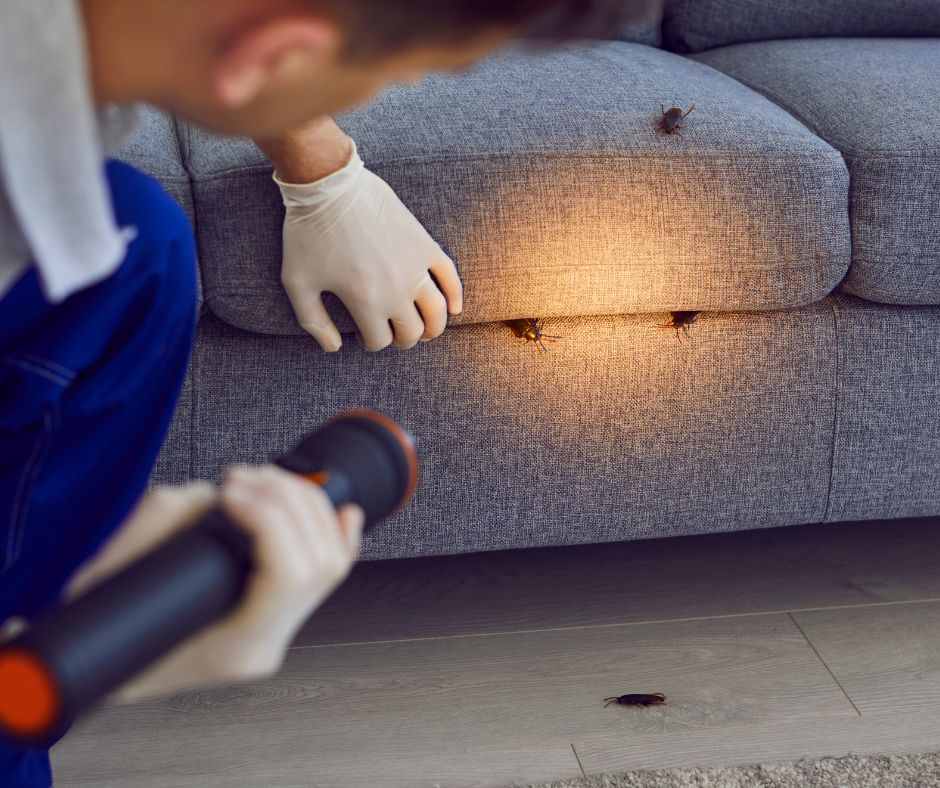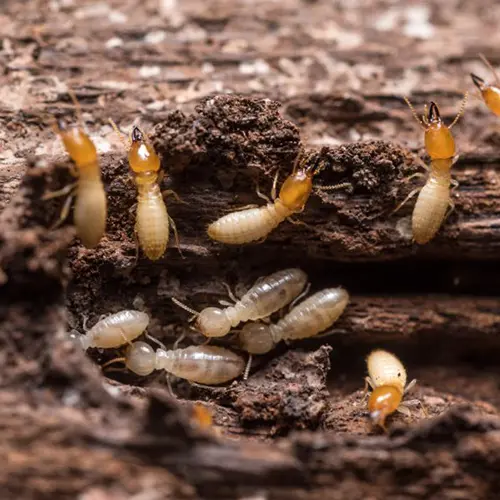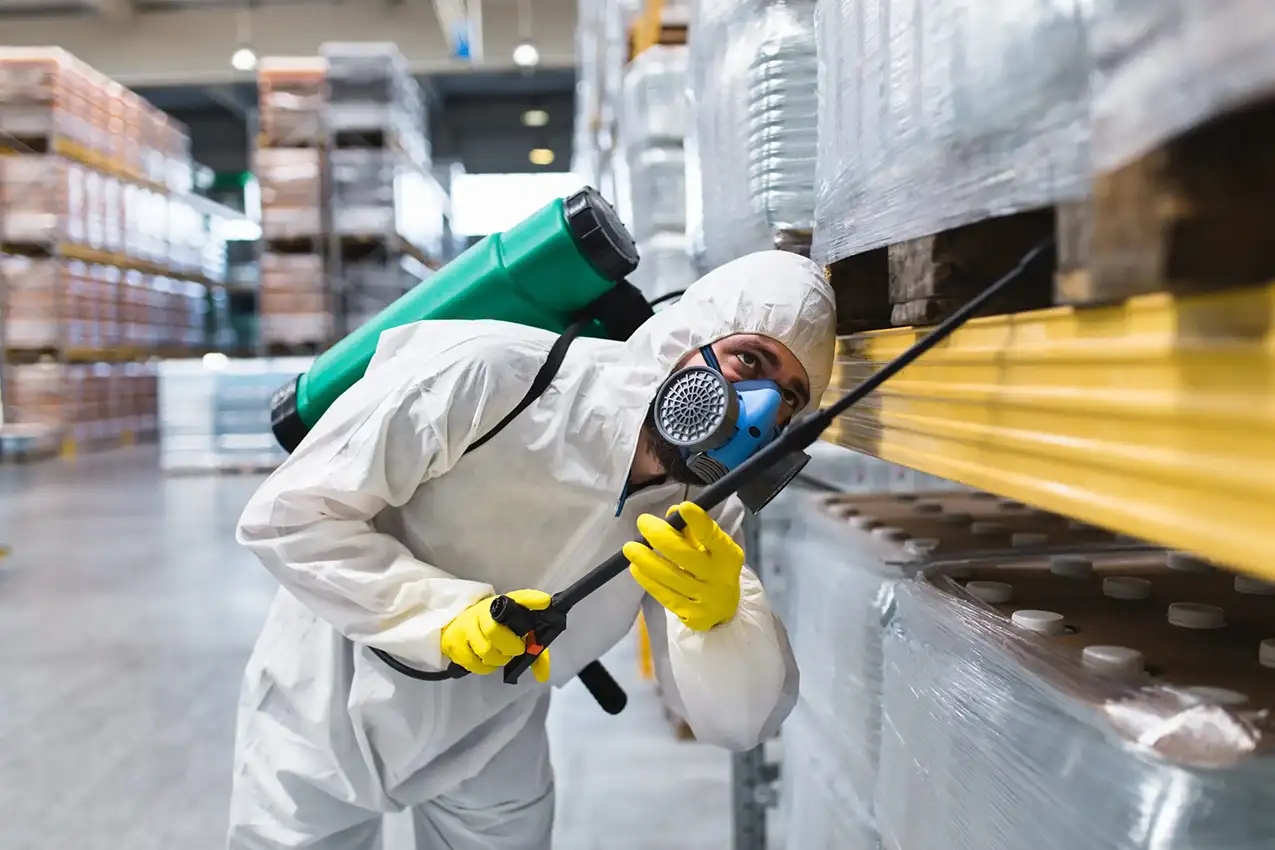Why Pest Control in Charlotte County Is Crucial for Your Home’s Health
Learn More About the most recent Breakthroughs in Bug Control and How to Carry Out Reliable Treatment Solutions
In recent years, the area of insect control has witnessed considerable advancements, driven by the need for efficient and lasting treatment options. Innovative strategies such as Integrated Parasite Management (IPM) combine environmentally friendly exercise with sophisticated innovation, boosting both effectiveness and ecological duty. The assimilation of smart modern technologies and DIY methods has empowered individuals to tackle bug issues more effectively. As we discover these advancements, it ends up being vital to comprehend just how ideal to execute these techniques in numerous settings to attain optimum outcomes. The ramifications for parasite management methods could be transformative.
Eco-Friendly Parasite Control Options
In recent years, the demand for environmentally friendly bug control choices has surged as house owners and organizations alike look for sustainable alternatives to standard chemical therapies. This shift is driven by growing ecological recognition and a need to lessen the health and wellness threats linked with synthetic pesticides.

Green parasite control techniques encompass a range of methods that focus on using all-natural materials and methods. Integrated Pest Management (IPM) is one such technique, integrating biological, cultural, and mechanical tactics to handle pest populaces while minimizing reliance on chemicals (Wildlife removal services). This holistic technique emphasizes prevention via habitat manipulation and the introduction of natural killers, consequently cultivating a well balanced ecosystem
Another prominent alternative is using agricultural pesticides stemmed from plants, which tend to be much less hazardous to non-target microorganisms. Products like neem oil and diatomaceous planet have obtained traction for their efficiency in regulating pests while posing very little threats to human health and the atmosphere.
Furthermore, exemption strategies, such as securing access factors and maintaining cleanliness, play a crucial role in eco-friendly parasite monitoring. By taking on these sustainable practices, people and companies can properly manage pests while advertising a much healthier world for future generations.
Smart Innovation in Parasite Administration
Advancement is improving the landscape of bug administration, with clever innovation arising as a critical pressure in improving performance and effectiveness - Wildlife removal services. The integration of Net of Things (IoT) gadgets, expert system (AI), and information analytics is revolutionizing exactly how insect control professionals approach invasions
Smart catches furnished with sensors can discover pest activity in real-time, sending prompt notifies to operators. This allows for prompt feedbacks, decreasing damage and minimizing the requirement for substantial treatments. Additionally, AI formulas examine historic information to anticipate insect behavior, making it possible for positive treatments based upon ecological problems and infestation patterns.
Drones and computerized vehicles are likewise playing a substantial role in pest management, offering aerial evaluations of big areas, determining hotspots, and even dispersing targeted treatments. These innovations not only improve procedures however likewise boost safety and security by limiting human direct exposure to potentially hazardous chemicals.
In addition, mobile applications equip consumers to check insect task and access specialist guidance, fostering a joint approach to pest administration. Overall, the adoption of smart technology is setting a brand-new standard in insect control, stressing data-driven decisions and lasting techniques that ultimately profit both homeowners and experts alike.
Integrated Parasite Management Methods
Integrated Parasite Management (IPM) employs an all natural approach to pest control, combining different methods to effectively take care of parasite populations while reducing dangers to human wellness and the setting. IPM focuses on understanding the pest life cycle, their natural opponents, and the environment in which they grow.
One of the essential elements of IPM is checking pest populaces useful link via normal assessments and data collection. This permits the identification of pest limits, identifying when treatment is required. Social methods, such as plant rotation, habitat, and sanitation control, are essential in decreasing insect prevalence and promoting plant wellness.
Mechanical controls, consisting of obstacles and traps, are also vital in IPM. These approaches can physically remove or hinder parasites without making use of chemicals. When required, the judicious application of chemical controls is utilized, focusing on targeted treatments that decrease ecological impact.
Education and learning and collaboration among stakeholders, including farmers, parasite control experts, and the community, are crucial for the effective application of IPM methods. By prioritizing lasting methods, IPM not just addresses pest problems yet likewise fosters a much healthier environment.
Biological Control Methods
Countless organic control techniques are increasingly identified for their effectiveness in taking care of insect populations while promoting environmental balance. These methods harness natural predators, parasites, and microorganisms to lower pest numbers without depending on artificial chemicals. As an example, the intro of ladybugs can successfully regulate aphid populations, while nematodes target soil-dwelling pest larvae.
Additionally, the usage of microbial pesticides, such as Bacillus thuringiensis (Bt), supplies an eco-friendly alternative for taking care of caterpillar pests. These products particularly target pest types, minimizing harm to advantageous pests and pollinators. Additionally, conservation organic control stresses enhancing habitats for natural opponents, such as birds and beneficial pests, thereby urging their presence in agricultural systems.
Research remains to reveal cutting-edge techniques within this area, such as making use of scents to interrupt pest mating Get More Information patterns or the development of biocontrol agents with genetic modification. Implementing these methods can result in lasting parasite administration techniques that reduce the dependence on chemical treatments, eventually fostering much healthier ecosystems. As recognition of these techniques grows, they are becoming essential components of integrated bug monitoring (IPM) methods, using a balance between effective parasite control and environmental stewardship.
DIY Insect Control Solutions
As property owners seek reliable means to deal with pest problems, DIY parasite control remedies have obtained popularity for their availability and cost-effectiveness. These approaches equip individuals to resolve infestations making use of conveniently available products and techniques, typically without the need for specialist intervention.

In addition, keeping correct cleanliness and regular examinations can stop insect entry and nesting (Wildlife removal services). Easy practices, such as securing fractures, removing food resources, and decluttering, can dramatically lessen parasite populaces. Traps, both homemade and readily offered, can also supply efficient services for tracking and controlling certain insects like pests or rats

Final Thought
The assimilation of environment-friendly parasite control options, wise modern technology, and innovative administration methods presents an extensive technique to reliable pest administration. By accepting Integrated Parasite Monitoring (IPM) and utilizing biological control methods, together with Do it yourself remedies, responsible and sustainable insect control can be accomplished.
Green pest control methods encompass a range of strategies that prioritize the use of natural substances and practices. Integrated Insect Management (IPM) is one such approach, integrating biological, cultural, and mechanical strategies to manage insect populations while decreasing reliance on chemicals. As find out here understanding of these methods grows, they are ending up being important elements of integrated insect administration (IPM) approaches, supplying an equilibrium in between efficient parasite control and ecological stewardship.
The assimilation of environmentally friendly bug control options, smart modern technology, and cutting-edge monitoring techniques provides an extensive approach to effective parasite administration. By accepting Integrated Pest Monitoring (IPM) and using organic control methods, along with DIY remedies, liable and lasting insect control can be achieved.